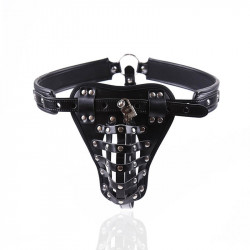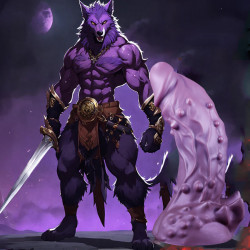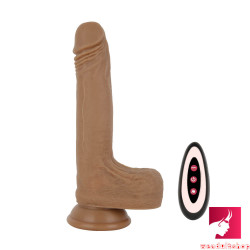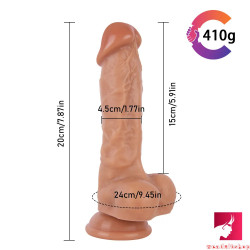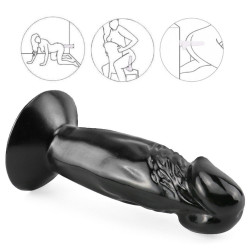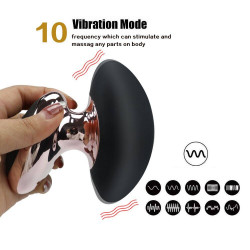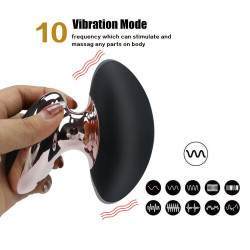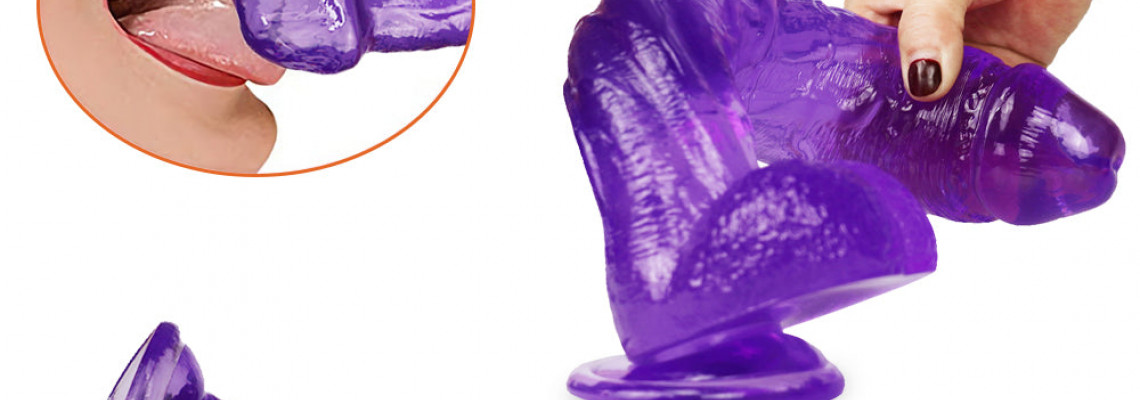
The Ins and Outs of Sex & Social Media
Social media has been the most popular Internet use since 2011. Facebook accounts for one out of every seven minutes spent online. More than 90% more links about sex are shared than any other content. Currently, there are 3 billion internet users worldwide who view the 1 billion websites available online. Today, 3 billion Google searches and 137 billion emails were sent. Five hundred fifty million tweets were exchanged, and 5.6 billion YouTube videos were seen.
It will drive you insane to attempt to visualize these numbers since they are so entirely unfathomable. Avoid attempting it. All you have to know is that 12,000 tweets were sent in the time it takes you to say "Twitter." In this noisy jumble of unseen numbers, what does it mean to be human? Is there space in the virtual ether for closeness or even love? How has social media impacted our romantic relationships? We consult the professionals.
Even though social media is just a few years old, we already take it for granted because it instantly delivers news from around the globe to our wallets. In contrast, old media appears slow and rambling. TV news uses reactive sensationalism to boost its ratings, and newspapers use opinion and conjecture to stay competitive.
Social media platforms like Facebook, Twitter, and others allow you to instantly and in real-time connect with people and events on the other side of the world. Social media has revolutionized the way that news is gathered. However, the most significant shifts have been in how we view sex and love, which are the most fundamental manifestations of human interactions.
A New Sexual Revolution
"A new era of sane permissiveness has been made possible by the Internet," claims technology journalist Dan Cooper. Instead of hoping to find a kindred spirit among the individuals you happen to live and work with, people can now more easily create new acquaintances through like interests and values.
Therefore, social media is eliminating the haphazard approach to dating and promoting a more organic attraction between like-minded individuals.
Dan goes on to say, "[social media] also helps to connect people from otherwise marginal groups: there's a reason the acronym has grown to LGBT+ to encompass the incalculable number of people who would otherwise think their feelings were entirely their own."
Dan would concur with Sunny Megatron, the host of the Showtime original series Sex with Sunny Megatron and a well-known sexuality educator. Numerous types of gender expression and sexuality are becoming more accepted, thanks to Facebook. "Am I normal?" is the most common question I get from people regarding their sexuality," says Sunny. Fetlife is one of the specialist communities devoted to creating a community for sharing and learning about BDSM and other alternative sexual practices. We all feel more normal and accepted as a result.
The Downsides of Sex & Social Media
But is there only good news and sex positivity when it comes to online love and sex? Maybe not.
Slutty Girl Problems, a well-known website for young ladies seeking sex and dating guidance, was founded by Lorrae Bradbury and was recently highlighted in Cosmo and other publications. Her studies in psychology and women's studies, along with her usage of social media (SGP has a very popular Twitter account), have given her a unique perspective on how social media is influencing the landscape of love and sexual culture.
"We can connect with people who share our desires, meet new people, and explore our fantasies through social media," explains Lorrae. However, it can also give us the delusion that there is such a person as the "perfect" one and that we will find them somewhere if we look hard enough. Instead of excluding possible compatible mates because they don't fulfil rigid requirements, it is our responsibility to use social media to build positive connections with others. Whether social media has a positive or negative effect on our dating and sex lives depends on us as individuals. (See A Case for Casual Sex for additional information.)
A Tale As Old As Time?
Regarding romance, one of the most unsettling drawbacks of social media is the occasionally startling discrepancy between an individual's online persona and their real-life persona. It's straightforward for someone to present themselves in a way that suits them rather than how they want to be seen. Since social media is essentially self-promotion, it's not possible to get a complete and accurate picture of a person through it.
Sunny Megatron knows this very well. According to her, "we often forget that our online personas must have some depth and substance, but that also needs to be present offline." Meeting new people and building relationships still require effort, just as they did before social media's existence.
Because it's a natural human tendency, people always present themselves in the best possible light. This isn't necessarily intentional deception, but it frequently is.
What Does History Tell Us?
As noted by John Lane, Editor-in-Chief of Badoink Magazine, the painting was employed for flattering and self-aggrandizing portraiture as soon as it was invented.
"Sex is now more widely accepted than ever thanks to social media, primarily due to people's inability to assist themselves. Nearly everyone enjoys a little salaciousness, and social media's instantaneity feeds into that impulsive sharing need.
John goes on to say, "Our sexuality and social media interaction actually run pretty parallel." Examine any old sculpture, tapestry, or sexual scroll. Since the beginning of time, humanity has engaged in some really obscene activities.
Therefore, perhaps the widespread use of social media is not having such a profound impact on our sexuality. Maybe the use of the media is more important than the medium itself. John Lane is well-suited to talk about the sexual use and misuse of digital technology because Badoink maintains a social media discussion forum called #sextechtalk.
Like any innovation, there are advantages and disadvantages, and as is usually the case, the psychology of individuals who decide to use the innovation determines these aspects.
For instance, I believe that incidents like the celebrity Fappening or the Snapchat leaks, in which a large number of private photos were made public, demonstrated the necessity of comprehending the influence of social media and the significance of learning about the new approaches we must take to the idea of privacy in the social media era. However, even that serves as a lesson in how we come to trust each other, particularly when it comes to disclosing our sexual orientation. John is undoubtedly correct. When new inventions become available, humanity has a history of sabotaging them for sex—this handbook about cybersex dates back to the early days of the Internet.
Is Social Media Good or Bad?
To get down to the point, does social media have a good or bad impact on our sexual lives? It's a complicated question with many nuances.
Lorrae Bradbury contends that "the digital and technological world is in many ways a reflection of our "real life" experience." Numerous online forums, websites, and dating applications are based on our dreams and wishes; technology bridges the gap and provides us with what we seek. For example, the well-known Tinder app is swift and lets you make snap judgments about possible mates based on their best photo and, if you want to read it, a brief bio. Yes, it moves quickly. However, it satisfies our need for instantaneous, appearance-based connections and instantaneous matching. We now have access to a far greater range of romantic and sexual alternatives because of social media.
But Lorrae also sees the other side. "We may become pickier about our partners as a result of social media," she argues. You may be searching incessantly for someone who doesn't exist if you get preoccupied with finding someone who is better, hotter, brighter, or whose interests coincide with your own. Dating websites frequently promise that you can discover someone who is absolutely ideal, but we must keep in mind that "perfect" is a fantasy in and of itself. (Read more at Volonté in Online Dating: 5 Myths You Must Dispel about sex and online dating.)
Sex & Shopping
Dan Cooper has seen how people's expectations have changed as a result of the technology's evolution into its current condition. "From our choice of TV shows to our banking, we expect everything to be set up in the blink of an eye after we press a button," he explains. The same is true of partnerships, where several phases of courting can occur in a matter of minutes, regardless of the individuals' global location. When you look at the growth of online dating and shopping, you can see that individuals are a lot better informed because they have more options. People are now much pickier since the pool of possible mates has grown beyond their local group and friends to include everyone with an Internet connection. Because there are so many individuals to pick from, it's simple to disregard these initial encounters, which is why instant connection apps like Tinder have become more popular.
Is Social Media Safe?
It appears that a question like "Is social media a good place to meet people?" cannot be qualified. Therefore, the topic of whether social media is a secure place to meet people may be more profound and more significant.
Sunny Megatron says it can work, but it requires patience and common sense. She admits, "Before social media, I struggled with dating a lot." "I occasionally get anxious when I meet new people, and safety is a significant factor for me when I do so. Before meeting someone in person, I would instead get to know them online. In order to see their pals, I also enjoy communicating on social media. A person's character may be inferred from the individuals they choose to surround themselves with and the calibre of their connections with others. Fetlife is where I met my spouse. After a few weeks of chatting and phone conversations, we finally met in person. We had been inseparable for the past seven years. Before our first date, did I fall in love with him? Not precisely. However, I was aware before we ever met that love was possible; we only needed time to see if that initial spark would eventually turn into a fire.
Maybe John Lane says it best.
The question of whether social media is better or worse for love and sex is, in my opinion, a dead end. This is because, regardless of how you meet someone—through a dating app, a classified ad, bumping into them in a bar, or something else entirely—human chemistry will ultimately determine those two aspects of our nature.









